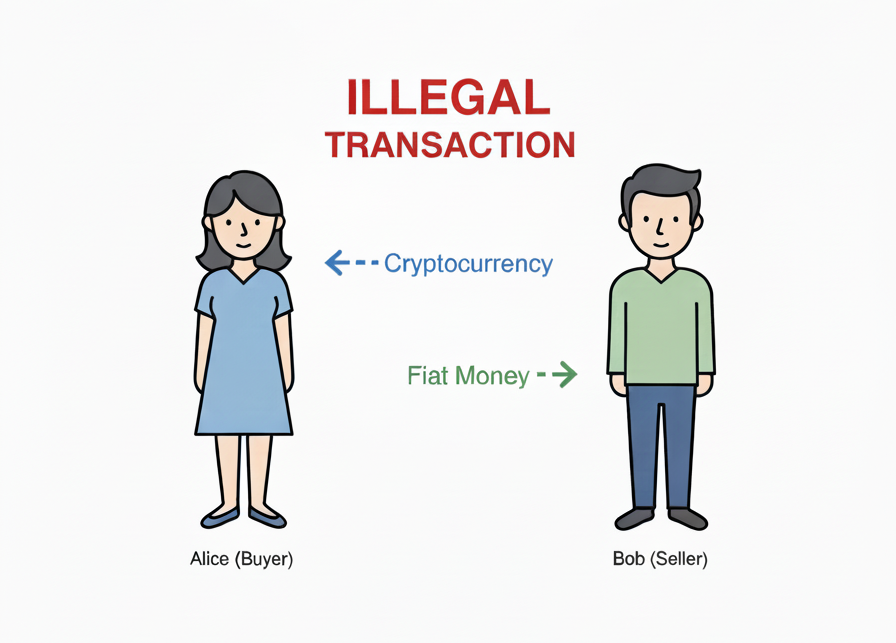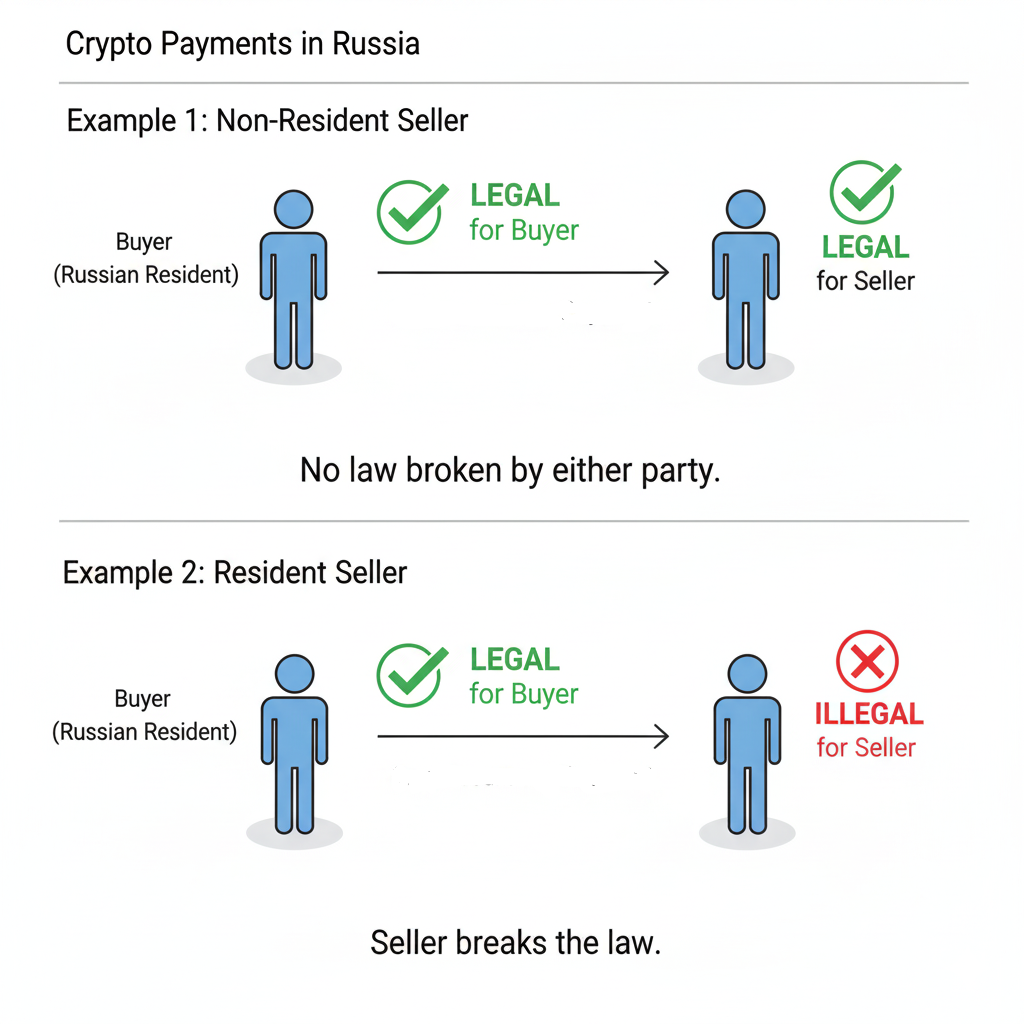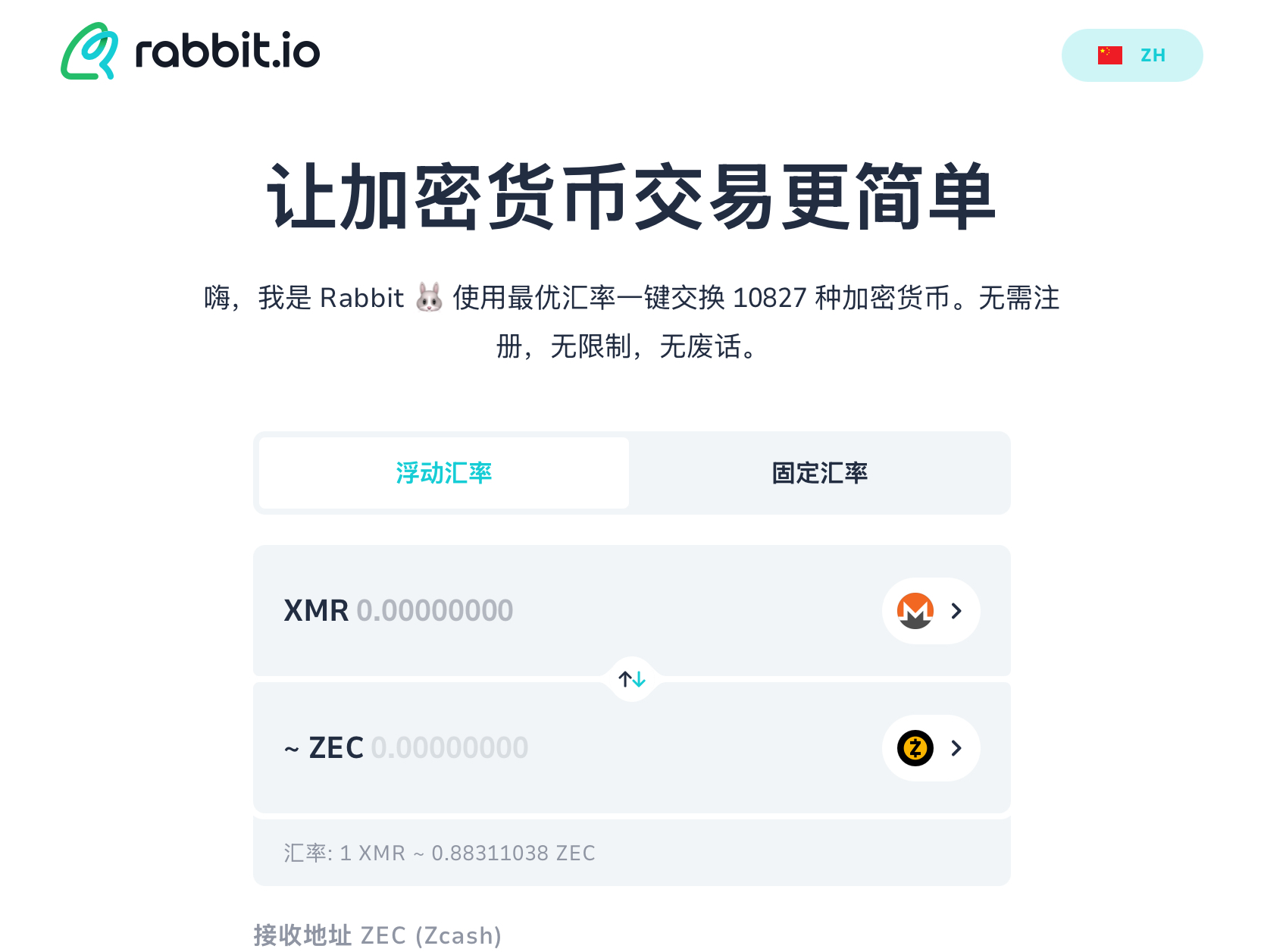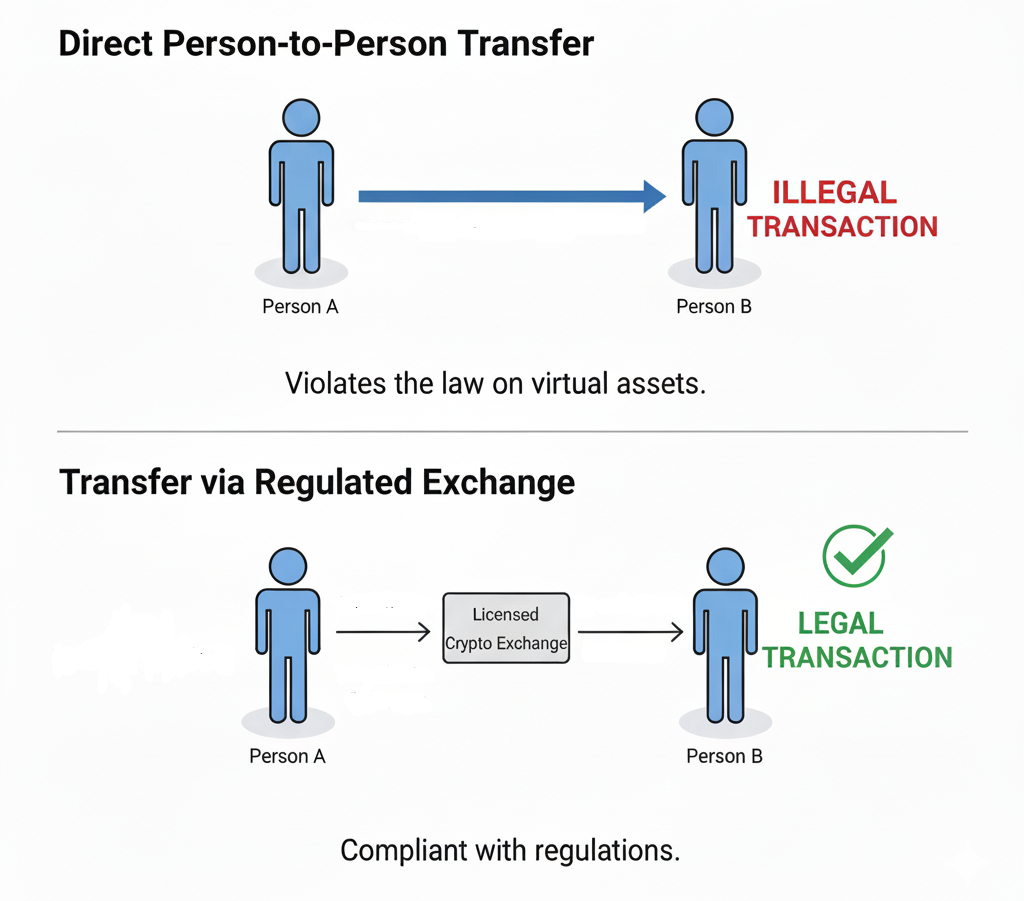
How Can Cryptocurrencies Be Banned?
Many countries, as we know, have banned cryptocurrencies. But have you ever stopped to think about what "banned" actually means?
It's impossible to ban ownership of cryptocurrency. Anyone who remembers twelve words automatically owns everything that's tied to those twelve words across all blockchains. To ban ownership, you'd have to ban memory itself.
So what exactly is being banned? Let's figure that out.
Interested? Follow Rabbit on Medium so you don't miss new articles like this one!
Ban on Exchanging Cryptocurrencies for Fiat Money
The first thing that comes to mind is what people have been saying since the very beginning of Bitcoin: governments can't easily bring Bitcoin under control — so they'll try to control the gateways between Bitcoin and the fiat economy. In the extreme case, that means banning them altogether.
Theoretically, it would look like this: if Alice bought cryptocurrency from Bob, paying him in fiat money, both Alice and Bob would be breaking the law.

Such a ban exists in Egypt (the Law on the Central Bank and the Banking System), Algeria (the Law on Currency and Exchange), and Morocco (a joint statement by the Central Bank, the Office of Foreign Exchange, and the Capital Markets Authority).
That's why the earliest cryptocurrency developers saw crypto not as a supplement to fiat money, but as a replacement for it. If you don't pay directly in crypto — if you first have to convert it into fiat — then your system contains a potential vulnerability, because that conversion point can be banned. But if cryptocurrency itself becomes a means of payment, such bans lose their power. Anyone can earn crypto and then spend it directly on goods and services without ever touching fiat currency.
Ban on Payments
Banning cryptocurrencies as a means of payment is a more complicated story.
Yes, such bans exist. For example, in Vietnam, a government Decree on Administrative Penalties in the Field of Monetary and Banking Operations — when combined with official guidance from the State Bank — means that using Bitcoin and similar virtual currencies for payments is prohibited.
Theoretically, even if a foreigner located in Vietnam were to make a cryptocurrency payment to a foreign company, that payment could still be considered unlawful — because it was initiated within a territory subject to Vietnamese jurisdiction.
However, it's technically difficult to enforce such a ban. A payer can easily use encrypted internet traffic, which means their transaction won't be detected. Tools like TOR, VPNs, and other encryption technologies are freely available — meaning anyone can evade the ban with little effort. And when a state cannot enforce its own prohibitions, that's a sign of weakness.
That's why most governments don't go that far (even in Vietnam, this ban will cease to apply on January 1, 2026). Instead, governments usually restrict crypto payments only for registered businesses and organizations operating under their jurisdiction. Such transactions are easy to track because registered entities regularly report to tax authorities. Payments made by private individuals — especially to foreign companies — generally fall outside the restrictions.
An interesting example of this approach is Russia. There, the Law on Digital Financial Assets forbids tax residents from accepting cryptocurrency payments. In other words, the person making the payment isn't breaking any law. The violation occurs only on the receiving side — and only if the recipient is a Russian tax resident, meaning they report to Russian tax authorities and their finances are within reach of the state.

That means that in many cases, there's no real ban at all. Anyone may pay in crypto — and to receive payment, it's enough to register a legal entity outside of Russia and accept cryptocurrency into a wallet owned by that entity. That's easy to do: there are jurisdictions that let you register remotely and cheaply, with prices starting at just $50.
Still, both officials and legal experts constantly repeat the phrase "cryptocurrency payments are banned in Russia." Try selling something to a Russian client and offering to be paid in crypto — if they're even somewhat informed, they'll likely refuse, citing the supposed "ban."
It turns out that for an effective ban on payments, the law doesn't even have to exist. It's enough for "experts" to keep shouting that it does. And even if the wording of the law is liberal, who actually reads the laws?
Ban on Mining
Some countries have banned cryptocurrency mining — mostly for environmental or energy-related reasons. For example, after its energy crisis, Iran temporarily banned mining for four months in 2021. But sometimes the official reasoning is different. In Vietnam, for instance, mining is considered illegal not because it consumes energy or harms the environment, but because one of its purposes is the issuance of prohibited means of payment.
Mining bans are not easy to bypass. In most countries, the power grid is tightly controlled by the state — unless you live completely off-grid. Even then, mining usually requires specialized hardware that the government can regulate or restrict at the import level. However, networks based on Proof-of-Stake or coins like Monero, which can be mined on ordinary CPUs, are much harder to police. That's why outright mining bans are still relatively rare.
There are even cases where a government publicly declares its intention to restrict mining, yet the local conditions are so favorable that miners come anyway — and stay. A good example is Iceland, where the prime minister once called for limiting mining to preserve electricity for households. But miners weren't discouraged. Not only did they continue operating, they built so many data centers that Iceland has become one of the world's leaders in Bitcoin mining.
Total Ban
Some countries go all in — banning everything related to cryptocurrency. The most famous example of such a radical approach is China.
The bans were introduced gradually, step by step. In the end, virtually all economic activity involving crypto was outlawed:
- the operation of exchanges and P2P platforms for trading one cryptocurrency for another;
- services for exchanging cryptocurrencies into fiat money;
- the use of cryptocurrencies as a means of payment;
- cryptocurrency mining;
- public offerings of new tokens;
- and even information activities related to cryptocurrencies.
The key document — the "Notice on Further Preventing and Dealing with the Risks of Virtual Currency Trading and Speculation," issued by the People's Bank of China together with several other agencies — classifies all cryptocurrency transactions as illegal financial activities.
But is this ban effective? Formally, yes: there's no visible crypto business in mainland China — except for Hong Kong, where these prohibitions don't apply. Yet Chinese users can still access foreign crypto platforms.
Here's a simple example. On the website rabbit.io, registered in Switzerland, we regularly receive requests from users whose time zones and browser language settings clearly suggest a connection to China. Even if their IP addresses aren't Chinese, that could simply mean they're using anonymization tools to bypass the Great Firewall. And these users often complete large crypto swaps involving a wide range of assets. Government bans don't stop them.

Interestingly, Chinese courts occasionally issue rulings in civil cases — for example, inheritance disputes, thefts, or divorces — that recognize cryptocurrencies as "virtual property" or "commodities." Such decisions don't legalize crypto operations or overturn the central bank's prohibitions, but they do acknowledge that cryptocurrencies can have value and can belong to someone. Even though all crypto transactions are officially banned in China, ownership itself has not been outlawed.
That said, there are two countries where ownership is prohibited: Algeria and Tunisia.
Imagine sending the seed phrase of a crypto wallet to an official government email address belonging to a senior state official in one of those countries — and copying the local police, asking them to check whether that official "owns" any cryptocurrency associated with that phrase. How would the police even begin to handle that situation?
Indirect Ban Through Restrictive Regulation
There's another approach to regulating cryptocurrencies — one that pretends to legalize them, while in reality stripping them of their core feature: the ability to be stored and used independently, without intermediaries.
This is a global trend. Originally proposed by the FATF, it's now being actively implemented in the European Union, the United States, Japan, and South Korea.
Even Iran has adopted the Policy and Regulatory Framework for Cryptocurrencies issued by its Central Bank, which requires that all cryptocurrency transactions go through officially authorized exchanges. It's not a direct ban — it's a regulatory environment designed so that only fully controlled, custodial solutions can legally exist.

A current example of this approach can be seen in Kazakhstan. The country has gone further than most in implementing FATF's anti-money laundering recommendations. Crypto transactions and payments in Kazakhstan are allowed only through regulated channels, with mandatory licensing for intermediaries. And those intermediaries have the power to block transactions or even seize cryptocurrency.
Which Approach Will Win?
In my view, the most promising — and the most dangerous — approach is the one that disguises prohibition as legalization.
- The ban on exchanging crypto for fiat can be bypassed simply by paying directly in cryptocurrency.
- The ban on payments usually applies only to businesses registered within the jurisdiction that imposed it.
- The ban on mining can be effective, but there are always countries where mining is profitable — for the countries themselves, not only for miners.
- And a total ban on everything related to crypto has never been fully enforceable anywhere.
But a ban disguised as regulation — that's the most insidious path of all. Step by step, it quietly takes away the freedoms that cryptocurrencies once offered, hollowing them out and turning them into meaningless digital assets.
—
Thanks for reading! Don't forget to follow me on Medium — there's a lot more to come.













